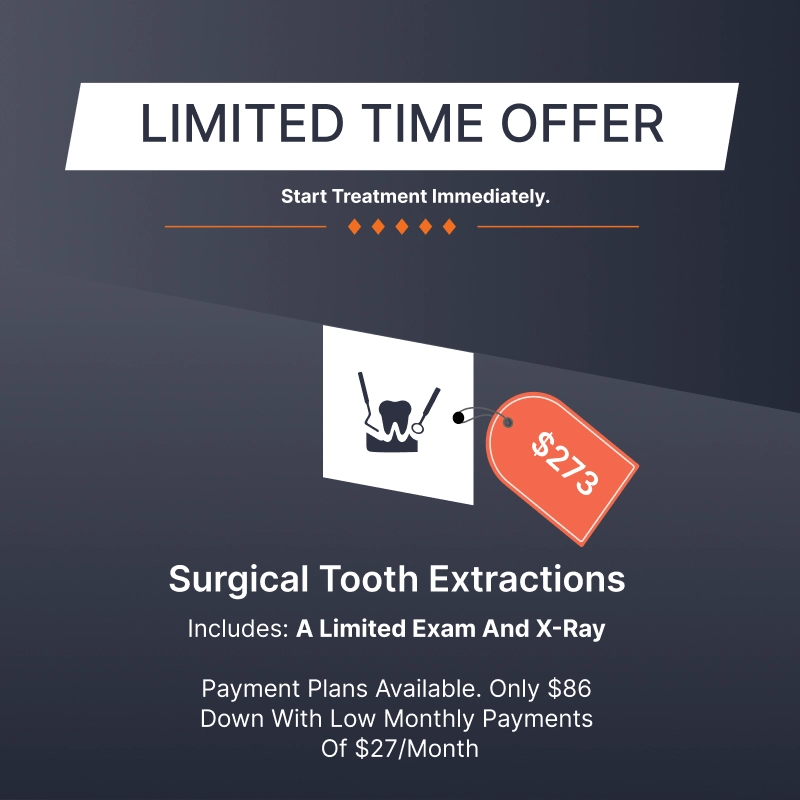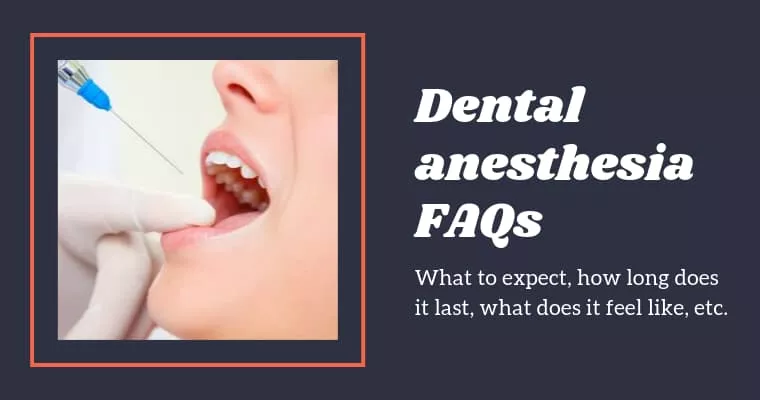Have you ever wondered what dentists do to numb your mouth?
If you need dental work that involves pain, it'll require dental anesthesia which gets translated as getting your mouth numb at the dentist.
A qualified dentist helps you overcome the anxiety for dental procedures by applying oral anesthesia. This will have the side effect of getting your mouth numb. Here we will answer frequent questions about getting your mouth numb at dentist such as does it decrease the blood flow to your mouth. After reading this, you can put your nerves to rest (literally) by knowing what to expect and how sedation dentistry is actually your friend in all of this. Before ongoing further don't forget to choose the right dentist for your dental problem.
Numbness is defined as a lack of sensation. This is achieved in dentistry by placing an anesthetic medication near a cluster of nerves, which affects the synapses and blocks many sensations, including pain. This allows dentists and hygienists to complete necessary treatments with minimal to no pain. Generally this is used for the dental implants or even in the case of gum injury.
You may have heard people refer to local anesthetic as Novocaine. Back in the day, Novocaine was the local anesthetic of choice, but that is not the case today. Why? Many patients were allergic to the byproduct that is made when Novocaine is metabolized.
Today, most dentists in the U.S. use a local anesthetic called lidocaine or articaine. These numbing agents are more effective, and very few people are allergic to them and generally used in the cosmetic dentistry application for those people who are not happy with their smile.
A needle is used to accurately place the local anesthetic under the tissue near the intended cluster of nerves or by the tooth for the maximum benefit.
Often, our Salt Lake City dentists find patients’ dental fears stem from a fear of needles, formally known as belonephobia. If this is the case for you, then you’re going to like this news…
New technology is coming out that reduces pain with an injection for sedation dentistry and helps ease your dental fear and anxiety. AtLegacy Dental, we use a wand to administer local anesthetic. This wand delivers the medication at a slow, steady rate, which results in less pain.
One day, there might even be a solution that eliminates needles. Until then, you can count on us to offer you the best dental care available today.
The important thing to remember is although injections may cause you initial discomfort, the alternative of not getting your mouth numb at the dentist is far worse. Additionally, avoiding dental treatments can cause you more pain down the road than getting the work done in the first place. You may go for temporary solution product such as Cocofloss, but they are not completely ideal solution.
Don't worry about post anesthetic condition your dentist will take care of it. Our Salt Lake City Dentist are experienced and take care if their patients.
At our Salt Lake City dentist’s office, we begin by first going over your medical history to make sure there won’t be any adverse reactions to a local anesthetic.
Next, a topical anesthetic (typically a gel on a cotton swab) will be placed on the injection site for a minute or two. This will get the injection site numb, making the initial injection poke less painful.
Depending on the treatment needed or health of your tooth, we may use multiple injections to ensure all nerve stimulus is blocked surrounding that area. While those few extra pokes may seem annoying, it is all done with your best interest (comfort) in mind.
Most local anesthetics are mixed with adrenaline or epinephrine. These substances make the anesthetic last longer and help keep you out of pain. However, it can also make your heart race.
This is usually prevented by not injecting the anesthetic into a blood vessel. But even with a careful dentist, it can still sometimes happen. If this happens to you, rest assured your racing heart will subdue after a minute or so.
If you have heart problems, your dentist may use a local anesthetic that does not contain epinephrine. An anesthetic that does not carry epinephrine may require multiple injections because it does not last very long.
The feeling of having your mouth numb is often described as asleep, full, or tingling. Depending on the treatment area, you may also feel numbness in your tongue, chin, cheeks, the roof of your mouth, nose, and just below your eye. For Example, If you got food stuck between teeth, and its paining a lot. The dentist will numb that area and check across to treat it in the best way without any feel of pain.
The length of time a local anesthetic takes to wear off will vary based on which type was used. Generally speaking, your treated tooth will be numb for 1-2 hours, and your lips and tongue will be numb for 3-5 hours from the time of injection. If it goes for longer then immediately consult with your dentist
The numb feeling goes away as the blood flow carries it away from the injection site to be broken down or metabolized. With your dentist’s permission, you can reduce the numbing effects more quickly by taking a walk or being active.
You may also ask your dentist to use OraVerse after your treatment. OraVerse is an injection that reverses the effects of the anesthetic, making the numbing sensation go away twice as fast. You should note that this injection typically costs $25-75, and dental insurance does not pay for it.
It's true that sedation decreases blood flow. But opposite to your natural intution, this is good during a surgery. By decreasing blood flow, sedation helps to minimize the risk of excessive blood loss. In addition, sedation can also be used to reduce swelling and inflammation.
With reduced blood flow to the area getting operated on, sedation reduces the amount of fluid that builds up around the injury site. As a result, sedation can be an effective way to reduce both bleeding and swelling.
Our Salt Lake City dentists hope this blog helps answer your questions about getting your mouth numb at the dentist. And more importantly, we hope it enables you to overcome your dental anxiety by knowing what to expect.
If you still have any questions regarding sedation, or are looking for a dentist; Legacy Dental in Salt Lake City, UT offers Sedation Dentistry in our state-of-the-art dental clinic with one of the top rated dentist, Jonathan G. Campbell, DDS, FAGD.
Give us a call to get your questions answered, or book an online appointment with us. We would be love to help you.








